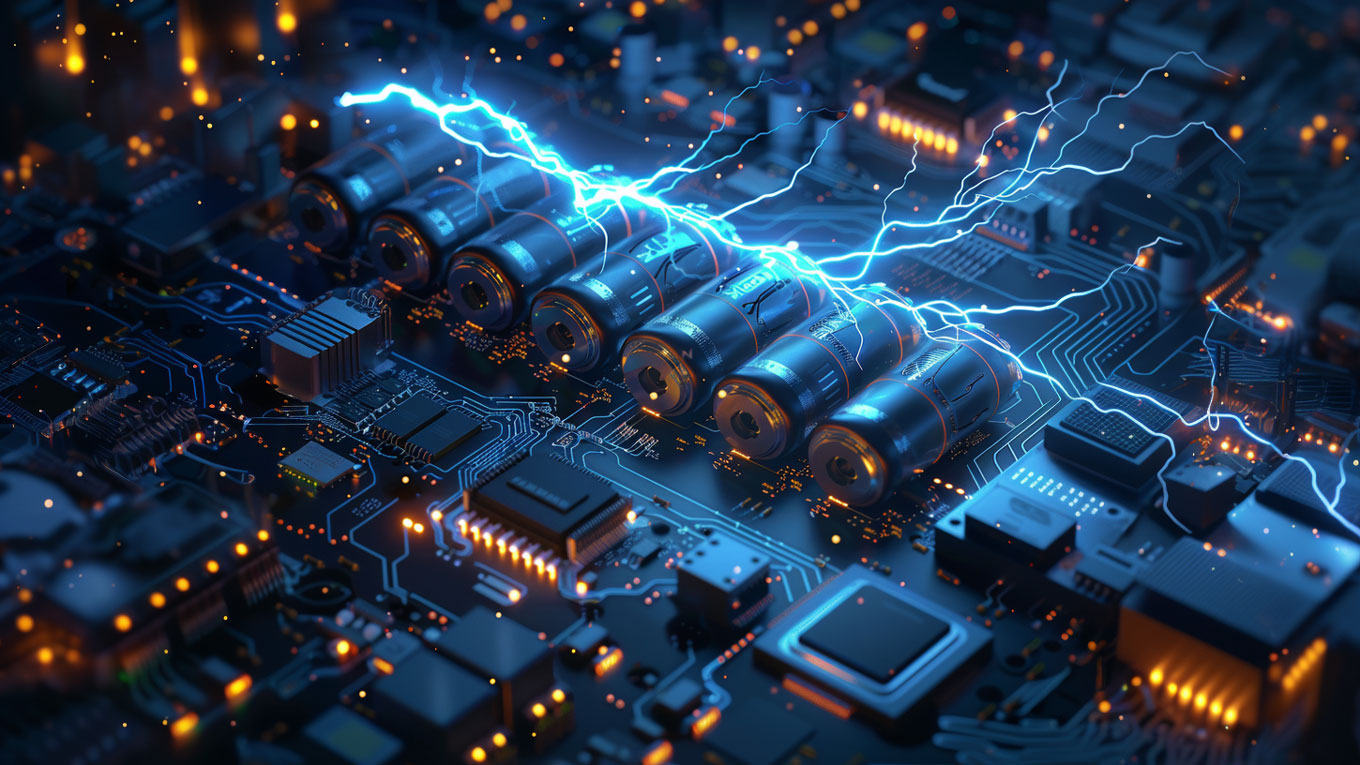 AI-generated illustration of ultrafast energy storage and power delivery via electrostatic microcapacitors directly integrated on-chip for next-generation microelectronics. (Image courtesy of Suraj Cheema)
AI-generated illustration of ultrafast energy storage and power delivery via electrostatic microcapacitors directly integrated on-chip for next-generation microelectronics. (Image courtesy of Suraj Cheema)Researchers achieve giant energy storage, power density on a microchip
Fitness trackers, internet-connected thermostats and other smart devices offer many benefits, but their growing popularity is driving up energy consumption, along with the need for more efficient energy storage solutions in small sizes. Now, researchers have engineered a new generation of microcapacitors that deliver both ultrahigh capacity and ultrafast operation.
To achieve this breakthrough in miniaturized on-chip energy storage and power delivery, scientists from UC Berkeley, Lawrence Berkeley National Laboratory (Berkeley Lab) and MIT Lincoln Laboratory used a novel, atomic-scale approach to modify electrostatic capacitors. Their findings, reported this month in Nature, have the potential to change the paradigm for on-microchip energy storage solutions and pave the way for sustainable, autonomous electronic microsystems.
“For the first time, we’ve shown that electrostatic energy storage capacitors are approaching the areal energy densities of electrochemical supercapacitors — and even commercial lithium-ion microbatteries,” said Suraj Cheema, a postdoctoral researcher in UC Berkeley’s Department of Electrical Engineering and Computer Sciences and co-lead author of the study. “This could expand the application space of electrostatic capacitors and help realize on-chip microcapacitors for size-restricted devices like self-powered implantable bioelectronics, advanced edge computing units, and microrobots.”
This collaborative study was led by Sayeef Salahuddin, TSMC Distinguished Professor in the Department of Electrical Engineering and Computer Sciences at UC Berkeley and faculty senior scientist at Berkeley Lab. In addition to Cheema, other co-lead authors are Nirmaan Shanker, a graduate researcher, and Shang-Lin Hsu, a postdoctoral researcher, both in the Department of Electrical Engineering and Computer Sciences. Co-authors are Joseph Schaadt, Nathan M. Ellis, Matthew Cook, Ravi Rastogi, Robert C.N. Pilawa-Podgurski, Jim Ciston and Mohamed Mohamed.
View the Berkeley Lab press release for more details.